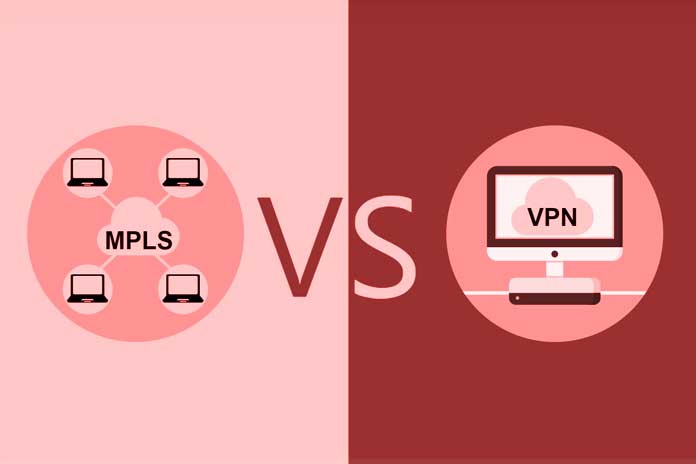Multi-site companies that need to interconnect their peripheral offices and allow the exchange of data have, in fact, only two possibilities:
- Entrust the task to your connectivity provider so that it implements an architecture of the MPLS type (Multiprotocol Label Switching)
- Contact your IT Manager and instruct him to configure a Virtual Private Network, or what the insiders briefly call VPN.
In this article, we will look at both solutions, evaluating the pros and cons of each.
MPLS Networks: One Exit, One Firewall
As mentioned above, to create an MPLS network, it is necessary to contact your Internet Service Provider so that once the necessary checks have been made, they can build a secure connection between the company’s headquarters and the various branches. When we talk about MPLS architectures, it is important to know two things:
- This type of architecture involves the construction of private networks that use the IP protocol but whose individual addresses are not visible from the outside.
- The peripheral offices connected to an MPLS network are not connected directly to the Internet but arrive there through a single “output” – the so-called ” star point” – which coincides with the office best reached by its connectivity service.
Wanting to simplify, an MPLS network is nothing more than a system of interconnected nodes that refer to a central node: the one equipped with a firewall and an outlet on the Network.
Also Read: MPLS: The Pros and Cons
VPN Networks: Many Exits, Many Firewalls
In the introduction of this article, we said that creating a VPN network does not require the support of the ISP, but it is sufficient to entrust the task to your IT Manager. This non-involvement of the operator is because VPNs connect the different nodes through “tunnels” that pass through the Internet. Therefore, unlike MPLS, each branch office must have its connection and firewall.
VPN Vs. MPLS: Which One To Choose And Why?
First of all, it must be said that the two technologies are not competitors but complementary because they natively guarantee specific and different functions:
- MPLS was specifically designed to provide, through label routing, a more efficient and faster way of transporting data packets over the Network via site-to-site routing schemes (ideal for handling CoS classes of service )
- IPSEC instead, from the beginning, was born as a maximum security protocol suitable, through the use of authentication and encryption, to guarantee the integrity and confidentiality of the data transported by TCP / IP
Now that we have seen how VPN and MPLS networks work, let’s analyze the pros and cons of one and the other solution to identify the most suitable one for your case. The first aspect to take into consideration is that of maintenance: if the company does not have the resources to deal with it, the choice is almost obligatory: it is necessary to set up an MPLS. In this case, the ISP will take care of everything: from installing the firewall to monitoring the Network and troubleshooting any problems.
Another important factor is the number of offices that need to be connected: if there are more than 4 or 5 units, implementing, managing and making any changes to a VPN network can be quite expensive and complicated. Finally, it is good to consider the element of flexibility: VPNs are more flexible than MPLS and provide greater autonomy, allowing each corporate office to be linked to a different operator. It is equally true, however, that to manage a Virtual Private Network, it is necessary to have professionalism. And professionalism costs.
Also Read: How To Choose The Best VPN For Your Task
